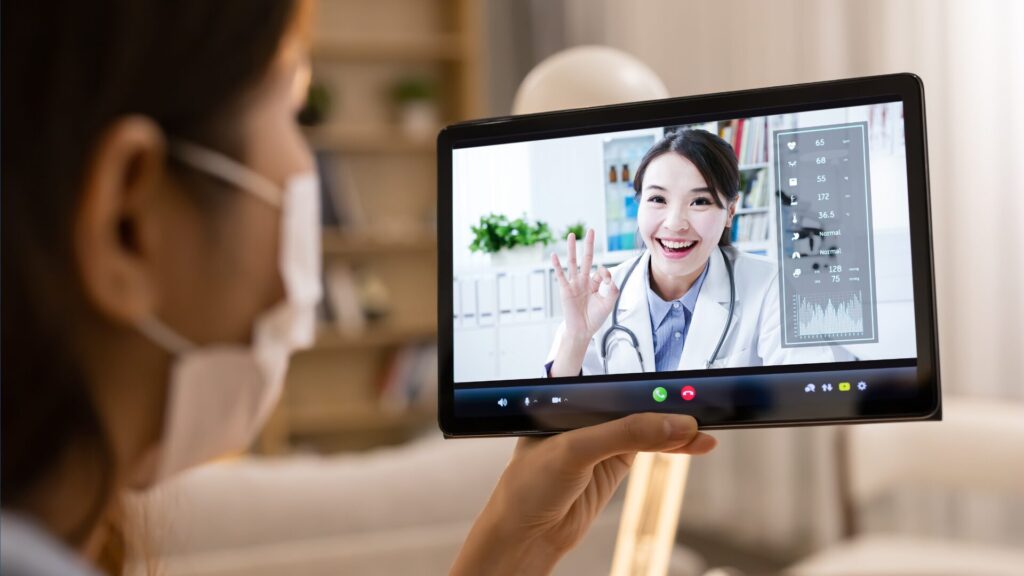Telemedicine’s Benefits for Minimally Invasive Surgery

Image sourced from Canva
Telemedicine minimally invasive surgery is a health service where surgeons at the Minimally Invasive Neurosurgery of Texas communicate with patients remotely. Plano Telemedicine Services involve communication through telecommunication technologies, such as videoconferencing tools to provide both preoperative and post-operative consultation.
The COVID-19 pandemic has transformed the utilization of telehealth. Before the pandemic, many surgeons in the U.S didn’t consider remote visits. The primary reason for that was poor reimbursement and apprehensions over HIPAA compliance.
However, the Minimally Invasive Neurosurgery of Texas still leaned on our existing telehealth program. The purpose is to continue providing preoperative and post-operative care, consultation, etc. after the minimally invasive surgery. Read on!
Benefits of Telemedicine Minimally Invasive Surgery
Many research studies have highlighted the use of telehealth or telemedicine within minimally invasive surgical specialties. Numerous studies have shown the benefits of telemedicine both before the surgery and after the minimally invasive operation.
Before and during COVID-19, our clinic has telemedicine service for patients suffering from back pain, sciatica, degenerative disc disease, SI joint pain, and many other health conditions.
We are using telehealth for preoperative assessment of patients and diagnosis of health conditions. Likewise, we use it for evaluation and follow-up visits after the minimally invasive surgery.
Limit Unnecessary Trips
Patients who have undergone minimally invasive surgery are taking benefit from Plano telemedicine services. Our telemedicine interventions limit unnecessary trips to the clinic, save time, and decrease the workdays in the final weeks of the rehabilitation process.
Standard Post-MIS Follow-Up
Many research studies have found that the use of telemedicine provides the same standard post-surgical follow-up as clinical visits. Using Plano telemedicine services, our patients stay at home and communicate with the surgeon via videoconferencing tools.
We have a special telemedicine program in place in which we educate and train our health providers. The purpose is to provide the best possible preoperative and post-operative care to patients. Telemedicine Minimally Invasive Surgery has improved communication between our surgeons and patients while enabling reliable follow-up evaluations.
Besides, we believe that telemedicine is associated with improved rehabilitation care, medication, physical therapy, and improving other symptoms of any health conditions, such as herniated disc, sciatica, back pain, SI joint pain, etc.
Improved overall Patient Experience
Telemedicine s improves clinical outcomes for many patients. We have examined patient satisfaction by asking our patients about Plano Telemedicine Services.
We found that almost all patients who had undergone minimally invasive procedures are happy with the approach. For example, patients who have undergone PLIF, TLIF, ALIF, lumbar interbody fusion, or laminectomy are satisfied with the telemedicine program.
Our surgeon ensures all our patients get appropriate preoperative and post-operative care. We educate our patients on the surgery procedure, benefits, clinic stays, the process involved, and rehabilitation.
Surgeons at the Minimally Invasive Neurosurgery of Texas believe that telemedicine is an important option for patient care, especially during the COVID-19. Moreover, our telemedicine program is designed to provide the best possible care to patients that not only improve their health conditions but also save them money on transportation and accommodations.
It, in particular, is useful for patients who want to avoid traveling from other cities to Plano. So, we found that our patients are happy with the money they saved due to limited unnecessary trips to the clinic. We focus on using their time efficiently and reducing the stress of traveling in intense situations like COVID-19.
Telemedicine Minimally Invasive Surgery is the new Normal
The dawn of the advanced technology has transformed the way patients receive healthcare. Today, doctors and surgeons can instantly access patient information via videoconferencing and educate them about the minimally invasive surgical procedure.
Patients can now connect with our surgeons using their smartphones in minutes from any part of the country. Remember, all these advancements fall under the category Plano Telemedicine Services. We use advanced technology in minimally invasive surgery to provide the best care remotely.
Plano telemedicine services is a surgical system developed by the Minimally Invasive Neurosurgery of Texas. It is a system that uses wireless networking or videoconferencing tools to connect surgeons and patients before and after the surgery. The technology not only benefits our patients, but it also provides technical accuracy as well as makes sure the safety of surgeons during COVID-19.
Final Words
Using preoperative telemedicine facility, we educate our patients about minimally invasive surgery. Also, we discuss options for their particular health condition. For instance, we explain over the video call about the MIS and its benefits, which include less pain, less blood loss, and less risk of infection.
At the same time, the patient has a shorter clinical stay. When it comes to post-operative procedure, we educate our patients and instruct them how the rehabilitation process occurs. So, telemedicine minimally invasive surgery is a win-win situation for MINT and our patients.
